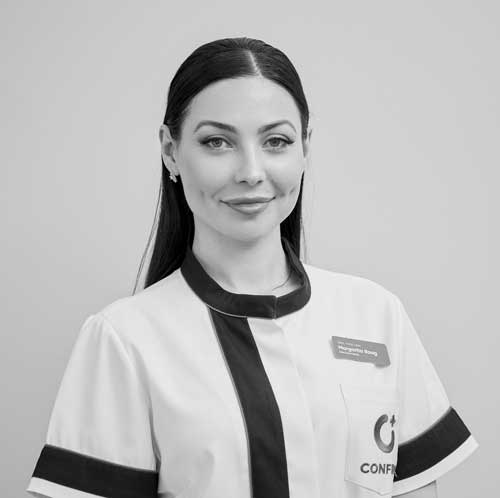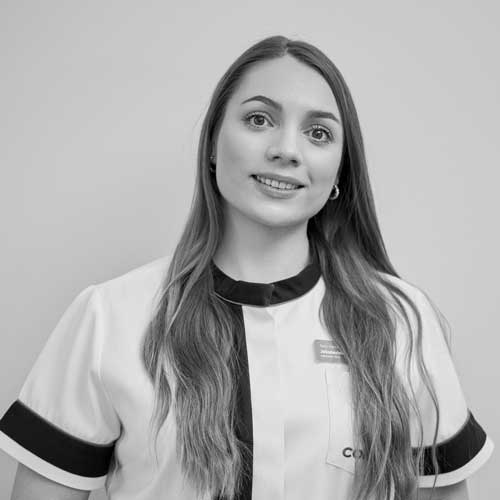- Beauty injections 13
- Beauty packages 1
- Body treatments 7
- Consultations 4
-
Facial treatments 19
-
Rejuvenating 11
- BioRePeel needle-free biorevitalisation
- Brightening light acid peel
- Chemical peeling
- Face and decollete massage
- Mesoestetic Age Element rejuvenating facial treatment with massage
- Microneedling collagen therapy with chemical peeling
- OxyGeneo injection-free rejuvenation
- Physiodermie anti-ageing facial treatment
- Physiodermie Express Brightening Treatment
- RF lifting
- Skinretin Xpert retinoid treatment with exosomes
-
Rejuvenating 11
- Hair treatments 1
- Intimate area treatments 3
- Laser epilation 4
-
Laser procedures 13
- Birthmark and other skin lesions removal with a laser
- Carbon peeling with laser
- CO₂ laser rejuvenation
- Fractional laser resurfacing
- Healing wounds with laser therapy
- IPL acne treatment
- IPL photorejuvenation
- Laser removal of warts and corns
- Photo-fractional laser rejuvenation
- Pigment spot removal
- Removal of capillaries and redness
- Scar removal with laser
- Vaginal laser therapy
- Tattoo and permanent make-up removal 1
Removal of capillaries and redness
Look for appointment timesCapillaries are small blood vessels in the surface layers of the skin that can lose their elasticity and dilate due to various factors. Enlarged blood vessels can appear on the skin in the form of individual red and bluish blood vessels or networks of blood vessels – so-called ‘spider veins’ – on the nose, cheeks and chin, for example, or appear as redness all over the face, including the neck, décolleté and, in fact, almost anywhere on the body.
Constantly reddened facial skin may indicate a medical condition — couperose or rosacea. While couperose is more common on thin, dry and sensitive skin with a smooth surface, in the case of rosacea, the facial skin is extremely sensitive, tight and irritated and pimples and pustules may also appear. Most commonly, rosacea is localised in the central part of the face – cheeks, forehead, nose and chin.
The main causes of enlarged blood vessels and redness are hereditary weakness of the capillaries, climate, lifestyle and hormonal changes in the body. Alternating cold and heat (including in sauna), dry indoor air during the heating season and too much sunlight can contribute to skin irritation and bursting of blood vessels. The elasticity of capillaries is also reduced by eating spicy foods, smoking and alcohol and damage can be caused by wrong skin care as well.
How to remove enlarged blood vessels?
The most effective way to reduce enlarged capillaries is IPL light therapy. The rays of light from an IPL device act only on dilated capillaries, without damaging the surrounding skin and normally functioning blood vessels. Light rays are absorbed by capillaries and cause blood vessels to constrict. Additionally, It stimulates the production of collagen, which strengthens the walls of blood vessels and makes them more resistant to bursting.
We remove individual capillaries, blood vessel networks from the nose, cheeks, chin and forehead as well as diagnosed couperose and rosacea. You may need to see a dermatologist who can identify couperose and rosacea and prescribe treatment. As these skin conditions are chronic in nature, it is often not possible to completely cure them. However, IPL light therapy can help to alleviate the skin changes. A complex approach is recommended for best results. In addition to the procedures performed with the IPL device, lifestyle and proper daily skin care are important.
Before performing the procedure, we recommend consulting a laser treatment specialist regarding the suitability of the procedure and to avoid possible risks and complications. During the consultation, a specialist will make a thorough facial analysis, evaluate the possible results, explain everything related to the treatment and give instructions for proper aftercare at home.
- Oncological diseases, epilepsy, melasma, keloid scars, active inflammations and herpes
- Tanned skin – avoid sunbathing for at least three to four weeks before the treatment, including going to the solarium
- The treatment is not carried out during an antibiotic course, and three to four weeks must have passed since the last time you took the medication
- Pregnancy and breastfeeding
- Tattoos in the treatment area
- The treatment is not performed on persons under the age of 18 without the consent of a parent or guardian
Almost all of the above contraindications are relative and the final decision on the treatment will be made by the specialist during the personal examination and consultation before the treatment.
- Avoid tanning for at least two to four weeks before the treatment, including visiting the solarium (risk of pigmentation).
- Avoid the use of self-tanning products two to four weeks before and after the treatment.
- Stop using products containing retinol or similar active ingredients three days before the treatment. Once the skin has recovered from the treatment, you can resume using them.
- At least six months should have passed since taking medicines containing isotretinoin.
- Inform the specialist about the medicines you are taking before coming for the treatment.
- Alcohol should not be consumed for at least one day before and after the treatment.
- Avoid intensive workouts for two to seven days after the treatment, depending on skin sensitivity.
- Avoid saunas and hot baths for at least two weeks after the treatment.
- Avoid tanning for at least three to four weeks after the treatment, use SPF 50 sun cream for at least two weeks; to extend the result, SPF sunscreen is recommended all year round.
- Leave a gap of at least two weeks before other facial treatments.
- Make-up can usually be applied immediately after the treatment.
- Mild redness, flushing and swelling may occur for about one to three days after the treatment. In rare cases, bruising, crusting or changes in skin texture may occur. This reaction is usually temporary. A cold compress can be applied to reduce the feeling of flushing and to soothe and restore the skin; use a skin repair cream (e.g. Bepanthen, Panthenol, Mesoestetic Post Procedure Fast Skin Repair cream, Mesoestetic Melan Recovery cream) until the skin has recovered.
Locations
Price
Capillary and redness removal consultation
Removal of single capillaries
Removal of capillaries and redness on the nose
Removal of capillaries and redness on the chin
Removal of capillaries and redness on the cheeks
Removal of capillaries and redness on the face
Removal of capillaries and redness on the forehead
We have several payment options. Read more HERE.
BOOKING
Removal of capillaries and redness



